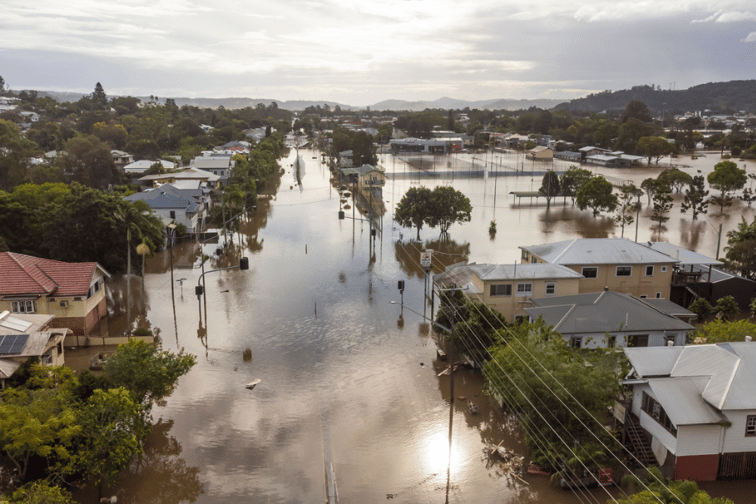

The northern NSW floods nearly a year ago have pushed thousands of people into homelessness, worsening an already serious housing crisis, the cross-party federal inquiry in Lismore has heard.
Natalie Meyer, Nimbin neighbourhood centre manager, told the hearing that the majority of people who have visited the center were experiencing poverty, but with a limited budget, there was not a lot her team could do to help them.
“We have to scrounge up donations to give people things like tents [and] sleeping bags,” Meyer said. “It’s pretty dire.”
The thousands of people now without a home or with inadequate housing after the record flooding included more than 550 people who were staying in seven temporary pod villages set up in the wake of the floods and managed by North Coast Community Housing (NCCH), ABC reported.
Craig Brennan, NCCH chief executive, said many of those people were couch surfing or sleeping in tents or cars as housing demand far outstripped supply.
“You can drive from here [in Lismore] up the highway to the Tweed and at any of those rest stops along the way, you'll see 20 or 30 cars each night [with people sleeping in them],” Brennan said.
The inquiry, chaired by Greens senator Janet Rice, also heard that rents skyrocketed in the region, and surging interest rates were putting pressure on homeowners.
Roy Starkey, a retired care coordinator and member of the ministerial advisory council for ageing, said “poverty has become an industry,” indicating the government funding forked out to job agencies.
Starkey told the inquiry those were a type of “band-aid solution” which did not address structural disadvantage.
He pushed instead for more investment in housing and in wraparound services, to provide disadvantaged people access to transport, better nutrition, medical treatment, mental health support, and education.
Meyer, too, called for systemic change to housing policy and regulation.
“Other people shouldn’t be allowed to profit at the expense of people not being able to have a roof over their head,” she said. “At what cost are we allowing this to go on?”
Income support has been raised as a key issue throughout the hearing.
Chibo Mertineit, Nimbin resident, said he had “never felt so mentally tortured” as when he was unemployed.
“We are making people sick, in my opinion, by having people live on such a small amount of money [as the Centrelink JobSeeker payments],” Mertineit told the inquiry.
When several witnesses were asked by the inquiry panel if they thought increasing welfare payments would help alleviate poverty, most said yes.
Meyer said the Nimbin neighbourhood centre “was the quietest we’ve ever been when it got additional income support through JobSeeker and JobKeeper payments during the COVID-19 period.
“For once they could afford to pay their rent, they didn't have to scrounge up just to put food on their table,” she said.
After the hearing, Rice said the inquiry is expected to make recommendations to increase welfare payments and housing support.
“You can’t get your life together and be in a position to actually find work unless you’ve got a decent amount of income coming in to put food on the table, pay rent, and pay bills,” she said.
The inquiry is expected to release an interim report in April, before the final report is presented in October, ABC reported.
Have a thought about this story? Include it in the comments below.
